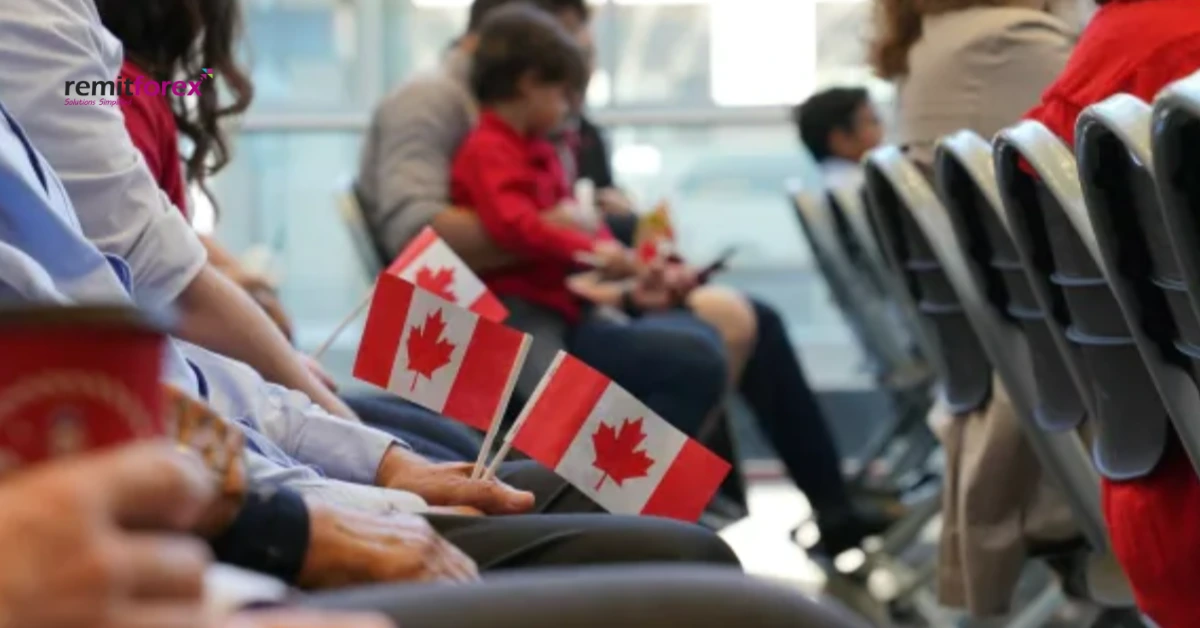Remitforex – The Money Transfer Expert
Remitforex – The Money Transfer Expert




Canada faces both opportunities and challenges in the realm of international students. Canada boasts world-renowned universities and colleges offering diverse programs and cutting-edge research opportunities. Canada offers attractive options for graduates, including work permits and immigration pathways, making it a potential springboard for long-term careers.
Raising the cost-of-living requirement to reflect LICO is a positive step towards ensuring their financial well-being while studying in Canada. Students will arrive with sufficient funds to cover living expenses, reducing financial stress and vulnerability. With more resources, students are less likely to fall prey to predatory practices or be forced to work excessive hours to make ends meet. Adequate financial resources can help students have a better overall experience by enabling them to focus on their studies.
Increasing the cost-of-living requirement to $20,635, reflecting 75% of LICO, addresses a longstanding challenge international students face in Canada. Basing the requirement on LICO ensures a more accurate reflection of actual living costs compared to the outdated $10,000 figure.
LICO stands for Low Income Cut-Off. In Canada, the term “low-income” refers to a family whose income is below a certain threshold and who is likely to spend more on fundamental necessities like food, shelter, and clothing than the average family. LICO serves as a benchmark for measuring and addressing poverty in Canada. It’s used by various government agencies, researchers, and social organizations to develop programs and policies to support low-income families.
LICO is calculated annually by Statistics Canada based on data from their Family Expenditure Survey. They analyze families’ spending patterns across different sizes and community sizes to determine the income level where spending on core necessities exceeds a certain percentage (currently 20%) of the average family’s income.
LICO, or Low Income Cut-Off, plays a specific role in overseas education for international students in Canada. Since January 1, 2024, Canada has used 75% of LICO to determine the minimum financial requirement for international students applying for study permits. This means applicants must demonstrate access to funds equivalent to 75% of the LICO for their chosen region and family size, besides tuition fees and travel costs.
This shift aims to better reflect Canada’s living expenses compared to the outdated flat figure of $10,000 used previously.
New Cost-of-Living Thresholds and Support Initiatives:
Minister Miller also provided an update on 3 temporary policies affecting international students that were all set to expire at the end of 2023, including the following:
Updates on Temporary Policies:
Quote:
“We are revising the cost-of-living threshold and exploring housing solutions to protect international students from financial vulnerability and exploitation,” says Minister Miller. Marc Miller, Canada’s Immigration Minister, highlights a significant shift in their approach to supporting international students.
Canada recognizes its responsibility to support international students beyond just granting visas. They acknowledge the challenges students face and are committed to ensuring their success. The emphasis is on universities and colleges to provide adequate student support, including housing, orientation, and academic resources. This signals a potential crackdown on institutions that fall short. Limiting visas is a strong statement, indicating that Canada is serious about holding institutions accountable for providing essential support services.
Quick Facts:
Benefits & Challenges!
The recent policy changes in Canada regarding international students offer a range of benefits, impacting both students and the overall education system. Here’s a breakdown of the key benefits:
Increased Financial Security:
Improved Student Experience:
However, it’s important to acknowledge potential challenges:
Overall, the recent policy changes in Canada demonstrate a commitment to supporting international students while ensuring responsible practices and a positive experience. However, continued monitoring and implementation of supportive measures are crucial to maximize the benefits for both students and Canada.
Unimoni is a one-stop-shop for individuals who need help with immigration, education, finances, and travel, especially those with international aspirations. We offer various services to make these processes more accessible for you. Our experts can guide you if you need help navigating the complex visa process. We also provide secure and reliable money transfers to loved ones worldwide. Choose our competitive rates if you need to exchange currency for travel needs.
Go for our student travel card to help you manage your finances abroad. Unimoni can also assist with booking convenient flights at competitive prices. Finally, if you need guidance for your study abroad journey, we have expert educational counsellors to help you make the best decisions!
Ready to make your international dreams a reality? Contact Unimoni today!

